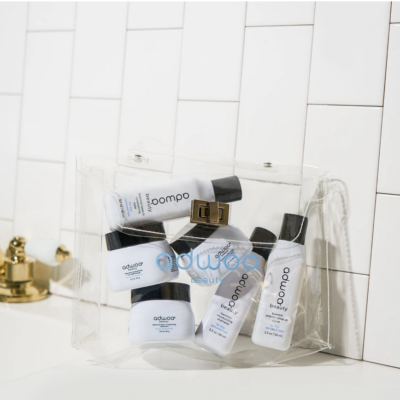
When Should A Beauty Brand Speak Up About Social Issues?
In this edition of Beauty Independent’s ongoing series posing questions to beauty entrepreneurs, we ask nine brand founders: When do you think a beauty brand should speak up about social issues? Have you ever spoken up about social issues and the decision to do so backfired?
- Shontay Lundy Founder, Black Girl Sunscreen
When you feel compelled to speak up on social issues, do so. If something resonates with you, speak on it. If it does not, there is no need to join a conversation that may be irrelevant to you.
I recently spoke out on an issue I was seeing in social media where it appeared many rapidly growing Black brand founders were having a difficult time getting their accounts verified. I shared a story on my personal page inquiring why Black brand founder accounts were not verified, while their white counterparts were easily verified. I tagged a few brands I felt this applied to as well as singling out Instagram and Facebook. They heard me! They heard us! Those brands and others were promptly verified!
- Anastasia Bezrukova Co-Founder, Minori
I think that it’s extremely important to speak about social issues that you authentically care about as a brand. We’ve definitely spoken out about BLM and the political landscape during the elections. The funnest thing we did was to create a VOTE “line drawing” filter on Instagram during the elections to encourage our followers to create content with it.
My advice to others is that your positions should first and foremost be reflected by the actions you take within your company. If you’ve never been an overly outspoken brand in the past, don’t go out and post just because everyone else is doing it. Performative actions can be spotted from a mile afar and those will backfire. Focus on treating your employees right and being inclusive in your product development, not on marketing your inclusivity.
- Salome Sallehy Founder and President, Sugar Sugar Wax
Social issues are a big part of the reason that we’re in business. When I started, I was fueled by some of the adverse sexist and racist experiences I had growing up. When I discovered sugaring, I felt empowered to take control of my facial and body hair. I was no longer at the mercy of salon appointments, awful hair removal methods that left scars or others’ judgement and definition of acceptability. I wanted other people to feel that same freedom by empowering them to define beauty on their own terms and destigmatizing hair, which is something that everyone has.
Every founder I know started their business because of a wrong in the world that they wanted to right. We are our social issues, and our business is how we fix them. As a brand, we have a moral and social obligation to stand up for what we believe in, and stand up for those who can’t stand up for themselves. We may not always be right, but we have to be true.
The reality is that there are some social issues that are heavily polarized, and you’re going to have opposition. Yes, it may impact your business to some degree, but, on the other hand, by standing up for what you believe is right allows your brand to cultivate community around shared values and ideals, which in my opinion outweighs the risk.
- Natalie Novak-Bauss Founder, KPS Essentials Skincare
I think a brand should speak up when they have something authentic to add to a social conversation. Too often I see brands putting their foot in their mouth because they speak when they should have listened, no matter how well-meaning they were at the time.
- Ericka Rodriguez Founder, Axiology
I don’t have an opinion on what other brands should do. I just know that, for me, Axiology is an extension of my personal values, so it is impossible for us not to speak up as a brand when it matters. Axiology was born out of a need to stand up for animal rights and the well-being of the planet. Speaking up is at the core of who we are.
I wouldn’t say it’s backfired on us. I would say it has sparked reactions and outcomes that were bound to happen eventually. For example, Sephora dropped us a few years ago because we were too vocal about animal testing and animal-derived ingredients. Like any relationship, it means they just weren’t right for us because our values didn’t align.
- Donagh Quigley Founder, The Handmade Soap Company
I think great brands are just extensions of their founders personalities. So, if the founder is really passionate about a social issue, I think it’s their moral responsibility to voice and live their mission. Through the business or outside the business, it is all the same. Consistency is key, but live your values completely before you advocate for them. As founders, we can’t say one thing through the brand and, then, live another thing when we leave the office and vice versa.
For us, it is all about treating our people right and, then, environmental issues. In terms of how we treat our people, it is just an extension of every other relationship in our lives. It's maybe not something that people will hear about half way across the globe, but it gives us such a rock solid foundation to talk about other stuff that is important to us like the environmental challenge we face.
Myself and my wife over the last few years have been buying land in Ireland and planting trees. Between that and keeping bees and growing all of our own vegetables and a few other charitable environmental trusts we are involved in, I think we earn the right to voice our point of views through our business platforms if we so choose. Live it and be consistent.
- Anna Brightman Co-Founder, UpCircle
This is something that we’ve increasingly had to get to grips with as our brand has grown. When you first start a business, you’re just an individual with an idea. However, if that idea takes off and you grow a large community off the back of it, then all of a sudden you may find that you’re being called upon to make comments or statements on wider cultural or political issues. It’s a huge responsibility, and the pressure to “get it right” can be quite terrifying!
Thankfully, choosing to speak up has only ever gone well for us as a brand. I think the main reason for this is that we do not simply do what everyone else is doing. We don’t post on impulse simply because we feel that there is pressure for us to “say something." It’s important to take your time and really think about what you want to say and do. We first do a post and email to acknowledge what is going on. Then, we commit to a plan of action to actually do something tangible about it. It shouldn’t be about making a performative post for the sake of it. It’s about inspiring real actionable change.
It’s also vital that you avoid cliché or adopting a tone of voice that is not your own. Being authentic in every way is the most important thing when speaking up on important subjects. Here are a couple examples of when we’ve done this before: Black Lives Matter and ReclaimTheseStreets.
- MURPHY D. BISHOP II Co-Founder and CEO, The Better Skin Co.
A brand should stay true to their core beliefs and values. If the social issue resonated with the brands beliefs and values, then make a statement. Once said statement is made, be cautious not to let internet trolls bait you into a conversation that could be misconstrued or taken out of context in any way.
When we speak up about a social issue, we typically make a well-thought-out base statement and keep the discourse under control by constantly referring back to our brand values. We have not had anything backfire. In my opinion, the issue comes in when people make personal statements as their brand, and said persons' beliefs and values may differ from the brand beliefs and values, even if they are the founder. We have a few in-house rules to govern our statements:
- We will make a social statement, but we stay away from blatant political statements and political discussions.
- We write a statement, and let it sit for up to 24 hours before posting. We then review and course correct if needed.
- We have a customer or brand fan review our statement before it goes live. We want to make sure it is clear.
- We value or content quality and only make statements to help create positive change.
- EVELYN SUBRAMANIAM Founder, Bija Essence
We are living in unprecedented times, so the answer to this question is very personal. When did anyone imagine that a pandemic would occur in this magnitude? Or that we would be facing such tremendous social justice movements as Black Lives Matter?
According to the 2021 Edelman Trust Barometer, 86% of the general population expect CEOs to speak publicly on social issues. Although most of these companies are Fortune 500 companies, there is a lot of insight for us indie beauty brands. I believe that it is of utmost importance to have a strong set of brand values and stick to them.
We are able to stand firmly on a position. For example, when COVID-19 struck, we immediately began to donate funds to direct relief. Know what matters to your company, and understand your market and their beliefs. Like this, you understand if they want to hear your ideologies or not. Listen to what your customers are saying to you personally or on social media and act on it.
We understand that our brand is global with a multicultural audience. Therefore, we have models and employees that represent that diversity. It is important to speak to your team and understand where they stand on issues and respect their beliefs. They may be able to guide you on when your brand should or should not speak up. Ultimately, your values and theirs should be aligned in order to make your brand a trusted one. Remember silence can be seen as complicity so anticipate the reaction.
If you have a question you’d like Beauty Independent to ask beauty entrepreneurs, please send it to editor@beautyindependent.com.






Leave a Reply
You must be logged in to post a comment.